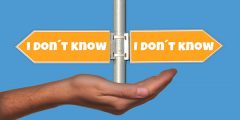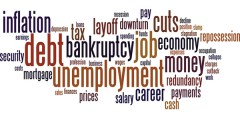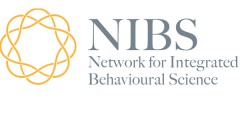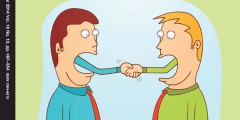On the Community of Advantage, by Bob Sugden
July 11, 2018
This week sees the publication of Bob’s 9th book – “The Community of Advantage: A Behavioural Economist’s Defence of the Market” by Oxford University Press. For the convenience of our readers, here’s the link to Amazon (other book retailers are available). We featured this in the June edition of our NIBS newsletter and you can now read …
The role of information search and its influence on risk preferences
July 24, 2017
“People overweight the likelihood of rare events”. This phrase distils the conclusions of most lab experiments studying risky behaviour. In these experiments subjects are asked to evaluate “lotteries” whose properties (i.e. the full list of outcomes and their associated likelihoods) are explicitly described. However, a criticism of this approach is that in everyday life, such …
Eye Movements in Choice
December 2, 2016
They say the eyes are the window to the soul. Here at NIBS we’ve been using the eyes – or at least the way people move their eyes – as a route to understanding what happens when people make decisions. We invited people to the laboratory and recorded their eye movements. We worked on people …
Choosing when to choose (and when not to)
November 14, 2016
Whilst it is crucial to understand what people choose and why, we also want to understand why people come to a decision at a particular time, or after a certain amount of deliberation. When we are trying to understand these questions behavioural scientists tend to run experiments that ask individuals to choose between a number …
Do people really want to be nudged towards healthy lifestyles?
October 31, 2016
People can expect longer and healthier lives if they make certain kinds of lifestyle choices. This is known not only to health specialists, but also to the general public. The considered advice of medical and public health experts is readily available in forms that are designed to be easily understood. In the UK, for example, …
Choice Rules and Accumulator Networks by Sudeep Bhatia
September 7, 2015
Decision makers often use sophisticated rules to make their decisions. For example, when trying to evaluate two objects they may look at a single attribute and choose the object that is best on that attribute. Alternatively, they may try to examine all attributes, and then add up these attributes to determine the total desirability of …








